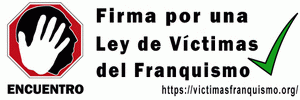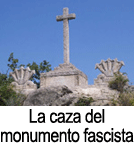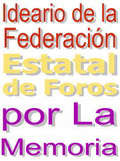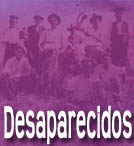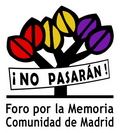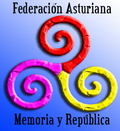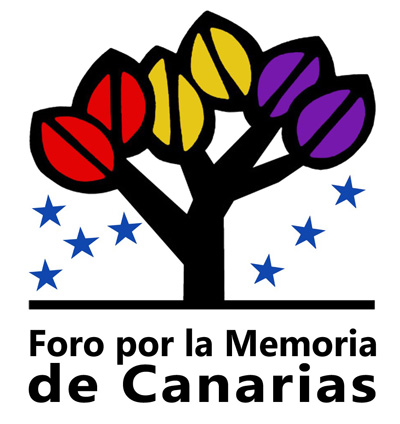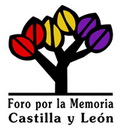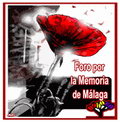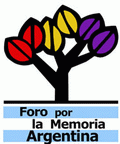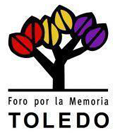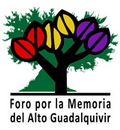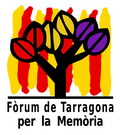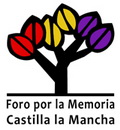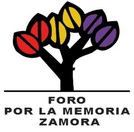Time for justice
 Enforced disappearances during the Spanish Civil War and Franco regime
Enforced disappearances during the Spanish Civil War and Franco regime
ByLydiaVicente Márquez and Javier Chinchón Álvarez
The cases based on the principle of universal jurisdiction brought before theSpanish National Court(Audiencia Nacional) by Chilean and Argentinean victims in the mid-90’s fostered the development of principles and standards of International Human Rights and Criminal Law. The arrest warrant issued by a Spanish judge on 16 October 1998 against Pinochet for the grave crimes committed during the brutal military dictatorship in Chile was not only a landmark in the advancement of international justice but it also represented an opportunity for Spanish victims to seek and obtain access to justice, truth and reparation for the crimes committed during the Civil War and franco regime. If Spanish courts could apply the international legal framework to protect victims of other dictatorships, investigate and offer reparation, even more so with respect to the victims of one of the darkest chapters of Spanish recent history.
Victims’ search for truth and justice has been long and difficult. Yet this journey has been lit by hope, namely, the exhumation process of mass graves initiated in 2000 by associations of victims, proceedings before criminal courts in relation to requests to exhume and the law-drafting process of the so-called Historic Memory Law which started in 2004.
The Historic Memory Law finally approved by Congress on 27 December 2007 failed to provide victims who “suffered persecution or violence during the Civil War and franco regime” with an effective remedy, thus undermining their rights to truth, justice and reparation. The Law falls short ofSpain’s international obligations, for example, denying any responsibility of the State as regards the clarification of the whereabouts and fate of the disappeared as well as of the identification of the remains. Relatives of victims must apply for grants to the government and then carry out the exhumations privately.
On 16 October 2008, investigative judge Baltasar Garzón issued a key decision establishing the jurisdiction of theNational Courtto initiate a criminal investigation into the claims brought by relatives of victims concerning alleged enforced disappearances, torture and executions of 114.266 persons identified as victims between 17 July 1936 and December 1951. Judge Garzón applied the principle that crimes against humanity cannot be subject of statutes of limitation or amnesty and ordered a number of investigative measures that would have entailed a realistic hope of progress for families to finding the bodies of their loved ones or accounting for their fate. However, the Public Prosecutor challenged the legal authority of theNational Courtto investigate seeking the annulment of the decisions ordered by the investigative judge as well as suspending all exhumations. The Public Prosecutor argued that enforced disappearances had long since ceased and therefore the offence would have been statute-barred and the enquiry would breach the principle of legality. In addition the application of the Spanish Amnesty law was yet another argument intended to prevent any investigation from taking place.
In 2009, Judge Garzón, the only judge to have challenged the lack of accountability relating to the crimes committed during the Spanish Civil War and subsequent Franco Regime, was charged with the crime of malfeasance for the decision of 16 October 2008, that is, for complying with the clear obligation under international law to investigate gross violations of human rights. The crime of malfeasance concerns misconduct in the administration of justice and sanctions judges for making unjust judicial decision. Judge Garzón was suspended in 2010 as a result of the malfeasance investigation authorized and carried out by the Spanish Supreme Court. By allowing a criminal trial against Judge Garzón for investigating crimes under International law, the Spanish Supreme Court has delivered a nefarious precedent in Spanish jurisprudence, undermining the status of international law in the domestic juridical order and disregarding the role of the judiciary in taking corrective action where domestic law contradicts the principles and norms of international law. Although the Supreme Court finally decided to acquit Judge Garzón from the malfeasance charges in this particular case its ruling of 27 February 2012 makes clear that an Amnesty law and other domestic legal obstacles prevail over international law norms and principles. Hence, the implications of this case exceeded the defense of Judge Garzón and have underscored structural issues affecting the Spanish judicial system.
The arguments used by the Supreme Court in the 27 February decision deal with critical questions concerning (i) the effective applicability of international law by Spanish courts, (ii) the legitimacy and lawfulness of the Spanish Amnesty law, (iii) the principle of legality, (iv) the role of judges, and (v) the nature and inherent characteristics of enforced disappearances and crimes against humanity. One of the most critical aspects of this judgment is the Supreme Court’s rejection of the permanent and continuous nature of the crime of enforced disappearance. The Supreme Court has ruled that the continuous nature of this crime is: “a fiction contrary to juridical logic” and as a consequence these crimes, committed during the Civil War and Franco regime, have prescribed. Furthermore, the Supreme Court proclaimed that the Amnesty law, an “instrument of reconciliation”, remains fully applicable. Finally, the Supreme Court, applying a narrow conceptualization of the ‘principle of legality’, concluded that the crimes cannot be considered crimes against humanity because there “was no international criminal law framework in force at the time” when they were committed.
In summation, never before had the highest Court in Spain stated in such a forceful and explicit manner that “the search for the truth is an expectation as legitimate as it is necessary” but “it does not form part of criminal proceedings” nor does it “correspond to the investigating magistrate” and hence it is impossible to conduct “a judicial investigation of facts, which appear to constitute crimes, regarding which it is known that it is not possible during the proceedings to warrant a finding of guilt since circumstances of the extinction of criminal liability, death, statute of limitations or amnesty, concur”.
The Supreme Court’s decision sets clear interpretative guidelines, preventing judges inSpainfrom applying international human rights and international criminal law doctrine and principles. This is a clear violation ofSpain’s international obligations. This decision, in fact, has brought an immediate and conclusive end to any hopes that Spanish victims’ may have harbored that an official investigation into the fate and whereabouts of their dear ones would be conducted. This ruling has certainly paved the way for the presentation of complaints before the European Court of Human Rights (ECtHR) againstSpainconcerning its international responsibility arising from the continuing violation of its obligation to carry out an effective investigation under the European Convention for the Protection of Human Rights and Fundamental Freedoms.
On 5 October 2012 Pedro Fausto Canales Bermejo (the Applicant), represented by Rights International Spain (RIS), submitted a complaint before the ECtHR regarding the lack of an official investigation into the enforced disappearance of the Applicant’s father during the military uprising which occurred in Spain against the democratic government of the Second Republic. On 20 August1936, agroup of falangists arrived in the town ofPajares de Adaja(Ávila), forcibly entered the home of the Canales family at two in the morning when all members of the family were asleep, and took the victim away. He was never seen again, and his final whereabouts have never been revealed. This application differs from those presented previously by other Spanish victims before the ECtHR: it is based on the fact that the 27 February Supreme Court ruling means there are now no other effective domestic remedies, as the judicial avenue has been definitively closed to the victims.
The incessant efforts of the Applicant, who has exhausted all reasonable means and resources at his disposal to find out of the fate and whereabouts of his father, have been met only with elusive and contradictory responses from the Spanish authorities, along with a total absence of reliable information or explanation, and the obstruction of appropriate investigations. The Spanish state has had opportunities to provide remedy to the alleged human rights violations, and as such it alone can be considered responsible for not having acted with due diligence.
The ECtHR has not thus far evaluated, nor has it made any pronouncements, with regard to the Spanish state’s violation of its obligations concerning victims of enforced disappearance which began during the Civil War and/or the Franco regime. If the ECtHR does not examine the merits of the case, all possibility will be denied to the Applicant, given that he now has no other effective mechanisms at his disposal in order to put an end to the violations of his human rights, nor indeed to obtain appropriate reparations.
By Lydia Vicente Márquez, human rights lawyer, Executive Director of Rights International Spain and Javier Chinchón Álvarez, law professor and lecturer, Research Director of Rights International Spain.


